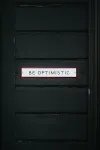Psychobabble
When the Heat is on: Staying Calm in Discomfort
Everyone has times of discomfort; it is how you manage it that counts. You can fight it, let it become a drama, or you can accept it knowing, as we say on our courses, you are in a rapid and calm water will come.
Faults and Fortitude: Accepting Imperfection in Tennis and Life
At Wimbledon Lulu Sun found the balance between striving for perfection and accepting mistakes.
Reel Resilience
Why not take a break from the pressures for a little and grab some popcorn: we have three short videos to remind you what helps build resilience to the pressures of change.
No one’s prefect - oops - perfect
Perfectionism is a path to misery and it seems to be increasing. Learn more about it, and what you can do to rid yourself of the burden.
Feeling Barmy in a BANI World?
Feeling out of sorts? A bit anxious? You may be experiencing the BANI world. BANI is a model to explain the confusion and anxiety in response to global conditions.
6 Ways to Stay Calm in the Heat of the Moment
If you encounter someone difficult at work, or if someone challenges you, try these 6 techniques to collect yourself.
Pressure to Perfom.
Olympic athletes teach us about performing under pressure, including the importance of rest and recovery, and that resilience can be broken and restored.
Taking a Chance
Evolution is often thought to be a process of trial and error. In fact, it’s the other way round: evolution proceeds by error and trial.
Who is in charge of your house?
What is controlling your responses - your thinking or you, the thinker?
The 4th Dimension - 7 Ways to Let Go
How to let go and find freedom from rumination and upset
The 4th Dimension - Letting go!
Why is Letting Go so challenging?
Braking Good
The body responds to pressure by releasing adrenaline and cortisol. Helpful in the short term, prolonged activation of the adrenaline and cortisol response is damaging.
Resilire et Robur
Resilience is both the ability to adapt to changes, and to stand firm when change is happening around you. We can practice how to do both.
Application
In our Challenge of Change Resilience courses, we talk about the need to value and develop our mental health as much as we do our physical health.
Great Expectations
We often hope that things will get better, or at least, not worse. Better or worse actually means better or worse 'for me.'
The F-words
Fight, flight, flail or freeze. How we respond to perceived threat, the physiology behind our response, and how rumination can prolong it.
What the world needs now...
Is their room for compassion at work?
Something Mything
The field of stress and stress management has more myths than the traditions of ancient Greece and Rome together.
Why do we do it?
Why do we ruminate?
Don't worry, be happy
A few months ago I attended the 13th annual conference on Happiness and Its Causes in Sydney.
Carried Over the Threshold
One of the fundamental principles of the Challenge of Change Resilience Training is that stress is not caused by people or situations but is the self-inflicted habit of ruminating about emotional upset.
Certain Uncertain
This year, 2017, is being described as a time of uncertainty, but when was that not the case.
Enough Is Enough
One of the scales on the Challenge of Change questionnaire is titled Perfect Control.
Oaks and Reeds
One of our colleagues had planned an afternoon mountain biking with his wife and teenage family.
Hide or seek?
In the Challenge of Change Profile we have a scale called avoidance coping, which is described as the ostrich principle for dealing with issues – stick your head in the sand and ignore them.
Pick it up and let it go, Part 2
This is a continuation of last week's two part blog. In light of recent tragic international events developing sensitivity to others couldn't be more important.
Pick it up and let it go, Part 1
One of the scales in the Challenge of Change Resilience Profile measures Sensitivity.
Antivenom
Heaven help me, I've just been holidaying with a Toxic Achiever. Do these people never relax?
Lizards and Leaders
Robert Ardrey claimed in The Territorial Imperative that a human being is 'as much a territorial animal as is a mockingbird singing in the clear California night'.
Smash, Grab and Burble
We know that expressing emotion is a vital part of resolving experiences and building resilience.
I'm Stickin' With You
The immediate feedback we receive from our Resilience courses is overwhelmingly positive and very humbling...
Me First!
There have been many references over the past few years to managers being narcissistic or even psychopathic.
It's not black and white!
We emphasise that there is no 'good stress', and that all that stress offers is a life that may be shorter and will definitely be more miserable.
Mind Full of What?
The new buzz-word is 'mindfulness'.
The Conundrum of Engagement
Employee engagement is highly correlated with a variety of measures such as productivity, absenteeism, retention, and customer satisfaction.
Where's TED?
A recent TED talk by Kelly McGonigal was an opportunity to demonstrate that the earth is not after all flat.
Resilience: Inoculation Against Stress
The research programme that underpins the Challenge of Change Resilience programme was based on the fundamental question in science – what's wrong?
People Skills
What is it that makes an effective manager?
Reflecting, Sleeping, Ruminating
The key to understanding what the programme is about is attention.
The Planning Trap
Being awake is about having presence of mind, which means that your mind is in the present.
Sir Graham Henry and the All Blacks: Champions of Resilience
How is Sir Graham Henry coping with the stress of releasing a book and the furore surrounding his suspicion about match fixing in the 2007 game against France?
Refreshing news
There's an old joke about the aspiring jazz musician visiting New York and trying to find directions to Carnegie Hall.
More Delicious Data
The effects of CoC Resilience training on sickness-absence and CoC Profile scores.
Delicious Data
Does training actually work?
Psycholimitations
Many models have been proposed to try to define and explain stress, but a common feature is a reliance on capacity.
Anti-silo
Business is based on competition, and it is the choice between competitors that benefits consumers by keeping prices down.
Regaining Trust?
‘Regaining the Trust’, but to regain trust it must once have existed.
Another day, another myth
During the 1950s and 60s two US Naval surgeons noticed a relationship between the number of things that had happened to people and their tendency to become ill.
Listen, just relax
We generally attach relaxation to particular times, such as weekends or the summer holiday.
To sleep, perchance to dream?
Participants in the Challenge of Change Resilience training sessions spend time at the beginning generating objectives for the day, and a common theme that emerges from the exercise is about sleep.
Prioritising: knowing what doesn’t need to be done
How often are we told we need to prioritise if we’re to be efficient?
The Challenge of Change: A New Zealand case study
One of the consequences of a recession is a greater need for evidence when making decisions about how to spend a diminishing budget.
Dangerous Myths
The NZ Herald recently carried an article claiming that “showing your anger rather than repressing emotions is the key to a successful life at home and at work”.
Resolutions
New Year is the time for resolutions: a new year, a new opportunity, a celebration to mark the occasion.
Happiness
In the most recent World Values Survey, which ranks the countries of the world on happiness, Denmark tops the list.
Being Well
‘Well-being’ and ‘wellness’ are increasingly popular phrases in the training world, but what do they actually mean?
























































